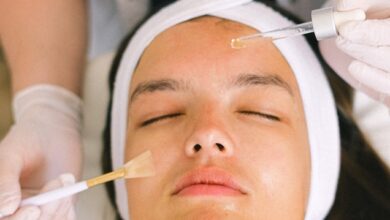Health
Types Of Addiction Treatment

The programs on addiction treatments are grouped into different modalities and general types. This is because individual needs continue to diversify and evolve. However, most rehab centers like Impact Recovery Center are well-equipped with the latest technology that ensures every patient receives personalized treatment.
Since addiction treatment is not a one-size-fits-all procedure, the type of addiction treatment is chosen based on your mental health, substance abuse, level of care, and financial ability. So, below are some of the common addiction treatments.
Detoxification
Medical-induced detox helps your body get rid of the addictive substance in your body. The main purpose of detox is to manage withdrawal symptoms safely. Your body can take up to months to get through withdrawal symptoms for most drugs. The duration depends on various factors like:- The length of the addiction
- The method of abuse. For example, injections, smoking, or snorting.
- Type of addiction substance
- Underlying medical conditions
- Family history
- Amount of substance taken.
- Evaluation: In this step, the medical team gets a comprehensive review of the patient’s history with drugs.
- Stabilization: Here the patient is stabilized to prevent any harm like a physical injury during the treatment using medical and psychological therapy.
- Preparing treatment entry: The doctor familiarizes their patients with their expectations during treatment.
12-step Facilitation
This treatment procedure is an active engagement strategy that is used to treat substance and alcohol abuse. During the group therapy, the substance abuse user recognizes the negative impact of alcohol or substance abuse in society. The three predominant ideas are;- Acceptance
- Surrender
- Active involvement in 12-meetings and related activities.
Treatment With Medication
Certain drugs can reduce cravings, reduce addicting behaviors and improve overall mood. For example, U.S Food and Drugs Administration (FDA) approved the use of Lucemyra to help reduce withdrawal symptoms and cravings in patients recovering from opioid addiction.Cognitive Behavioral Therapy
Cognitive-behavioral therapy is a valuable treatment tool as doctors can use it to treat different addictions, including but not limited to food addiction and prescription drug addiction. In addition, it’s effective in treating post-traumatic stress disorders like anxiety and depression. The treatment usually involves changing behavioral and thinking patterns. These strategies may include;- Facing your fears instead of avoiding them.
- Using problem-solving skills to help cope during difficult situations.
- Gaining confidence in own’s abilities.
- Learning to calm your mind
Rational Emotive Behavioral Therapy
REBT is an action-oriented approach that focuses on helping people manage their emotions, behaviors, and thoughts in a realistic and healthy way. During the therapy, the medical professional focuses on your emotional problems to better understand your issues. With addiction treatment, the medical practitioner will probe into you to understand why you chose the path of substance abuse. Some of the benefits of REBT include:- Improved social skills.
- Overall improvement in your quality of life.
- Reduced feelings of anger, anxiety, depression, and sadness.





